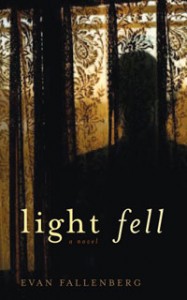“Israelis buy so many books!” an acquaintance told me in wonder and appreciation during my recent trips to the U.S.
“Yes, but don’t be overly impressed,” I cautioned. “The main reason is that we have a lousy public library system.”
Ironically, the libraries of the country of the People of the Book are small, under-funded, and under-stocked. The Baka neighborhood library is a typical example. It’s got a dedicated and helpful staff and a decent collection of children’s books, but if you’re an adult, the chances of finding what you want in decent condition are pretty small.
In fact, when I stopped by yesterday morning, it was my first visit since my kids outgrew the children’s book section several years ago. I was looking for two new releases-Amir Guttfreund’s new novel Bishvila Giborim Afim and Anita Shapira’s new biography of Zionist literary and spiritual guru Yosef Haim Brenner. The librarian told me that the books I was seeking were on order but hadn’t arrived yet. Best to come in on a Sunday-that’s when the new books come in and get snatched up, she said.






